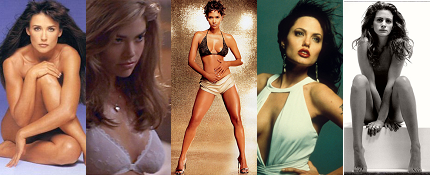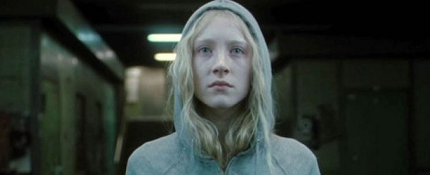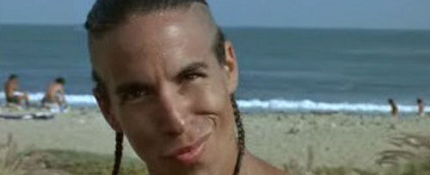
The Queen, the latest movie from director Stephen Frears (Dangerous Liasons, High Fidelity, Mrs. Henderson Presents) plays out a bit like a British Forrest Gump. The main difference is that Forrest Gump himself (along with Jenn-nay, Bubba, and Lieutenant Dan, of course) was a fictional character, whereas all of the characters in The Queen are real people.
Not only are they real people, but all but one of them are still alive (to my knowledge), with Diana Spencer, the former Princess of Wales, being the key "one" that is not. As it turns out, Lady Diana is the central character of the film, with the plot focusing on the relationship between greater England (headed by Tony Blair) and the Royal Family (headed by the Queen, naturally) during the days immediately following her death.
Though there are some issues with the "characters" (Blair, played by Michael Sheen, is presented as a bit too much of an "everyman" for a Prime Minister, for example), the presentation is crisp and almost documentary-like. All actors involved give a yeoman's effort, playing such well-known public figures in events that took place just nine years ago. It's one thing for Forrest Gump to bump up alongside stock footage of JFK or Richard Nixon - it's quite another for Helen Mirren, a Brit (as are all major cast members, save for James Cromwell), to play her Queen, who happens to still be alive. Daunting stuff. As is Mirren's performance, where she gives what is guaranteed to be an Oscar-nominated performance (and likely winning, I might add).
At the end of the day, Diana manages (yet again) to outshine everyone. The filmmakers handle the footage (real or otherwise) of her death with class, and she commands the screen whenever on it, which is often. And to think, she didn't even have to audition.
85 out of 100


























2 people have chosen wisely: on "Fletch's Film Review: The Queen"
Diana is the central context of this film, but her character is not presented.
Prince Charles tells his mother, "The Diana we knew was very different than the Diana idolized by the public", but this truth is never developed in the film. I'll mention it here.
While the "people's princess" remains the icon of superficial popular culture, the Royals knew a very different, darker character behind the facades of glamour and pseudo-compassion.
Both Diana and her brother, Charles Spencer, suffered from Borderline Personality Disorder caused by their mother's abandoning them as young children. A google search reveals that Diana is considered a case study in BPD by mental health professionals.
For Charles Spencer, BPD meant insatiable sexual promiscuity (his wife was divorcing him at the time of Diana's death). For Diana, BPD meant intense insecurity and insatiable need for attention and affection which even the best husband could never fulfill.
Clinically, it's clear that the Royal family did not cause her "problems". Rather, Diana brought her multiple issues into the marriage, and the Royal family was hapless to deal with them.
Her illness, untreated, sowed the seeds of her fast and unstable lifestyle, and sadly, her tragic fate.
In reality, the Queen's reactions to Diana's death surely covered a range of ambivalent feelings, and was not just a cold insistence on protocol, as suggested by the film.
Wow. Thank you for your comments. Though I can't say that I am wildly informed of the Royal Family, you seem to be quite knowledgable on the subject.
I think you got my jist, though. While not appearing as a character (only via stock video and photos), Diana managed to still be the "star" of the film, going beyond even being the vehicle for the plot. Even some nine years after her death, I felt that her screen time was pretty dominating and that her charisma stole the "scenes" in which she appeared. Pretty impressive, if you ask me.
Post a Comment